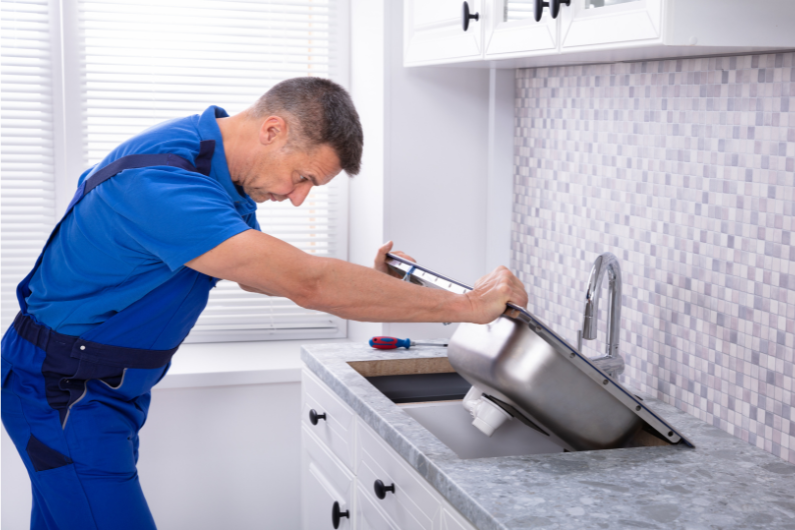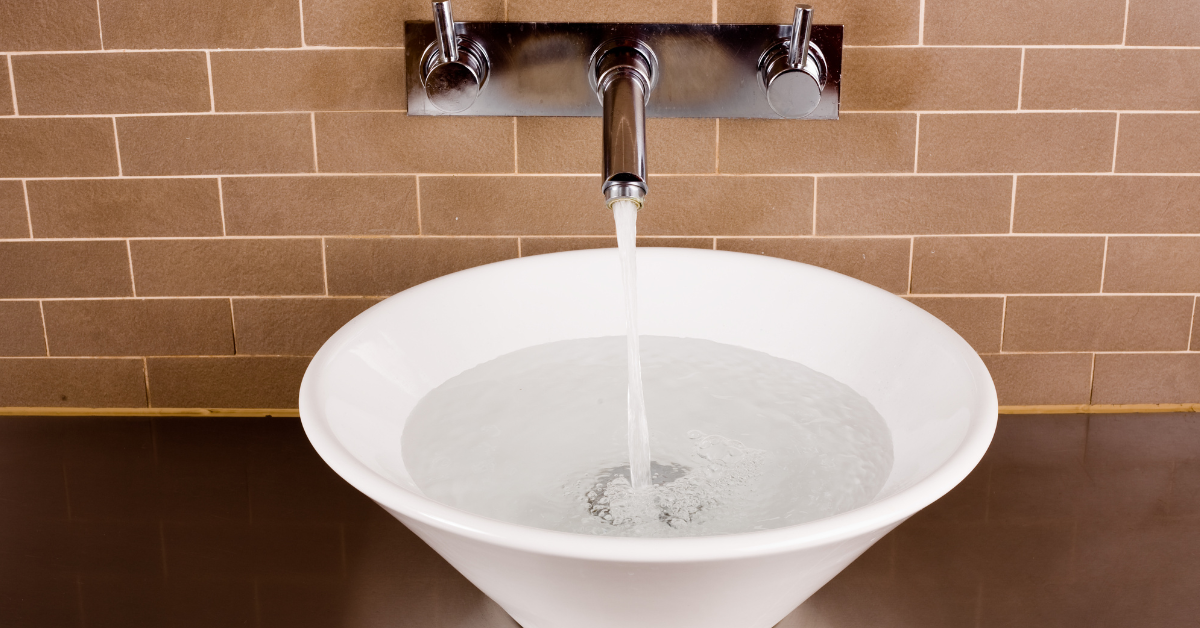Ways To Quickly Address A Slow-Draining Sink
Ways To Quickly Address A Slow-Draining Sink
Blog Article
Everyone may have their unique idea on the subject of 4 Tips to Fix a Slow Draining Sink.

Introduction
We've all been there: You're brushing your teeth or cleaning your hands, and you discover the water pooling in the sink. As opposed to swiftly swirling down the tubes, it lingers, transforming your once-refreshing morning routine right into a small overload scene. A slow-draining sink isn't just irritating; it's frequently an indicator of larger plumbing issues lurking underneath the surface area. The good news is that a lot of slow-draining sinks can be taken care of with a little expertise, a couple of standard devices, and some patience. Ready to tackle this project head-on? Allow's roll up our sleeves and dive right in.
Comprehending the Sources Of a Slow-Draining Sink
Prior to you begin poking around in your pipes, it helps to know what may be causing the slowdown. Recognizing the origin makes it much easier to choose the right fix.
Devices and Materials You'll Need
The right tools make all the difference. Fortunately, you will not require a totally equipped plumbing's van to get the job done.
Step-by-Step Guide to Fixing a Slow-Draining Sink
Now, allow's get involved in the nitty-gritty. This detailed procedure will certainly lead you via straightforward strategies to restore your sink's drain.
Step 1: Get Rid Of and Tidy the Stopper
Often, the stopper (that small plug you lower to obstruct water) is the very first offender. Remove it thoroughly and wipe any kind of hair or substance trapped around its base. Rinse it thoroughly prior to putting it back in position.
Step 2: Make Use Of a Plunger to Remove Debris
Got that bettor ready? Setting it over the drain and provide it a couple of firm pumps. The concept is to develop suction that can loosen up any obstruction. If you see bits of debris floating up, you get on the right track.
Step 3: Try a Drain Snake or Wire Hanger
If the bettor does not suffice, it's time to bring out the drain serpent. Delicately feed it right into the drainpipe and twist as you go. You may feel some resistance-- that's likely the obstruction. Maintain twisting and drawing till you eliminate the blockage. If you don't have a drain serpent, a straightened cable wall mount can operate in a pinch.
Tip 4: Apply a DIY Drain Cleaner
An all-natural cleaner made from baking soda and vinegar can break down recurring crud. Put half a mug of baking soft drink right into the drain, adhered to by half a mug of vinegar. Let it fizz for about 15 minutes, after that flush with hot water. This chain reaction frequently does marvels for small clogs.
Step 5: Rebuild and Test the Sink
Put every little thing back together and run the faucet. Does the water currently swirl down the tubes at a reputable rate? If yes, provide on your own a pat on the back. Otherwise, don't misery-- there are still a few even more tricks up your sleeve.
Essential Tools for Do It Yourself Fixes
A plunger is your best beginning point. A tiny, sink-sized plunger produces suction that can dislodge small obstructions. For more relentless blockages, a drain serpent (sometimes called a plumber's auger) functions marvels. A pair of handwear covers, a flashlight, and possibly a pair of protective goggles are also handy.
Recommended Cleaning Solutions
Light dish soap and hot water can help break down greasy accumulation. A mixture of baking soft drink and vinegar is a tried and true home remedy, and enzymatic cleaners supply an even more environmentally friendly method. Maintain chemical drain cleansers as a last option, as they can be extreme on your pipes.
Usual Offenders Behind Slow Water Drainage
So, what's obstructing things up? Normally, it's a blend of everyday particles-- believe hair, soap residue, toothpaste deposit, and leftover food particles. Gradually, these tiny bits collect and hold on to the pipe walls, slowly narrowing the passage and making it harder for water to go through. Sometimes, mineral deposits from hard water can also add to the gunk, developing the excellent tornado for stubborn obstructions.
When is it Time to Do Something About It?
If you notice the water draining pipes slower than common, it's a good concept to interfere faster rather than later on. Waiting as well long can result in finish clogs, unpleasant smells, or perhaps pipe damages. If the water takes greater than a few seconds to clean out after shutting off the tap, consider it a warning and get ready to put on your do it yourself hat.
Safety First: Safety Measures and Prep work
Before you launch into unclogging setting, think of safety and security. You're taking care of potentially dirty water and particles, so slip on a pair of handwear covers. If you're making use of chemical cleansers, make sure the room is well-ventilated and follow the guidelines on the label.
Protective Equipment and Office Configuration
Lay down some old towels or dustcloths around the sink area to capture sprinkles. Clear away any type of items that could get in your means, like soap dispensers or toothbrush owners. Ensure you have excellent lighting-- order a flashlight if needed.
Alternate Approaches for Stubborn Clogs
Not all clogs are produced equivalent. If your sink still refuses to comply, take into consideration these different remedies.
Sodium Bicarbonate and Vinegar Method
We currently discussed this, however it deserves noting once again. This mild, green method is much safer than chemical cleansers and frequently rather efficient.
Enzymatic Drain Cleansers
Enzyme-based cleaners make use of all-natural germs to digest organic matter. They're an outstanding selection if you're wanting to prevent rough chemicals. Just remember, they may take a bit longer to work their magic.
Chemical Drain Cleaners: Advantages And Disadvantages
Chemical cleaners can blow up with tough obstructions quick, yet they're not without disadvantages. They can generate warmth and fumes, damage pipelines if used exceedingly, and pose ecological risks. Use them moderately, and constantly comply with the instructions very carefully.
Safety Nets to Keep Your Sink Flowing
Prevention is the most effective remedy. By taking on a couple of basic habits, you can maintain your sink from slowing down to begin with.
Routine Cleaning Routines
Wipe down the sink container and fixture area on a regular basis. Get rid of hair or food bits before they have an opportunity to wash down the drainpipe.
Preventing Hazardous Materials Down The Tubes
Think twice before disposing coffee premises, oil, or fibrous veggie scraps down the sink. These perpetrators hold on to pipe walls, developing clogs gradually.
Routine Upkeep Checks
Arrange a fast regular monthly evaluation. Run warm water with the sink for a couple of minutes, taking notice of the flow. If it appears sluggish, act quickly before it ends up being a full-on blockage.
When to Call a Professional Plumbing Professional
In some cases, despite how difficult you attempt, that clog just won't move. That's when it's time to generate the pros.
Indications That Suggest a More Significant Concern
If your sink drains pipes slowly despite multiple efforts, or if you discover water backing up in other fixtures (like your shower or bathroom), you may have an extra serious pipes problem lurking deeper in the system.
Stabilizing Do It Yourself Initiatives with Expert Assistance
While do it yourself can conserve you cash and supply a feeling of accomplishment, there's no embarassment in calling a professional. An expert plumber can evaluate your entire plumbing setup, guaranteeing there's no underlying damage or long-lasting problem that could cost you more down the road.
Contrasting Expenses and Long-Term Solutions
Before making a decision, consider the big picture. A low-cost, quick fix might fix the problem momentarily, yet buying an extra permanent solution might save you cash and stress and anxiety in the long run.
Considering the Expenses of DIY vs. Expert Repairs
DIY fixes commonly set you back little more than the price of a bettor or a container of baking soft drink. Specialist solutions, on the other hand, included a price tag but might stop repeated issues and pricey repair services later on.
Purchasing High Quality Fixtures and Upgrades
If your sink's style contributes to constant blockages, it could be worth upgrading to higher-quality components or altering the plumbing layout. Consider this an investment in your house's performance and comfort.
Final thought
A slow-draining sink can seem like a minor irritability, but it's usually an indicator that your pipes needs a little TLC. By understanding the root causes, utilizing the right devices and strategies, and dedicating to straightforward preventive measures, you can maintain your sink streaming easily. And when all else stops working, never think twice to call an expert-- your home's pipes is worth the financial investment in care and upkeep.
Three Common Ways to Fix a Slow Drain
Baking Soda Method
Boil a full pot of water. Measure out cup of baking soda and pour it down the drain. Then take cup of the magical cleansing substance known as white vinegar and drop that down there too. Allow the mixture to fizz in the drain for five minutes as the vinegar and baking soda combine. Now dump in that whole pot of boiling water. This combination of cleaning substances should clear out anything that is causing your sink to drain slowly. If it doesn t...
Zip-It
If the baking soda method doesn t clear out your drain, it may be because a significant amount of hair and/or other debris has collected there and you need to remove it. Purchase a Zip-It tool at any home improvement or hardware store and insert it into your drain. It will catch any collected hair or debris that s blocking the flow of water. Pull it out. If it s got a big clump of hair, etc. on the end, you ve probably got your culprit.
Drain Cleaner
If these methods don t work, there is the standard drain cleaner that you can also buy in a hardware store or even your local grocery store. It s better if you can use a household solution, but these drain cleaners often work in a pinch. They re very simple to use. You generally just dump them in your drain and wait. If even this method is not effective, it may be time to call the plumber.
https://www.mrrooter.com/oneida/about-us/blog/2017/july/three-common-ways-to-fix-a-slow-drain/

I hope you enjoyed reading our post about Solved! How to Fix a Slow Sink Drain. Thank you for taking time to read through our article post. Enjoyed reading our blog entry? Please quickly share it. Let other people discover it. Thank you so much for going through it.
At This Website Report this page